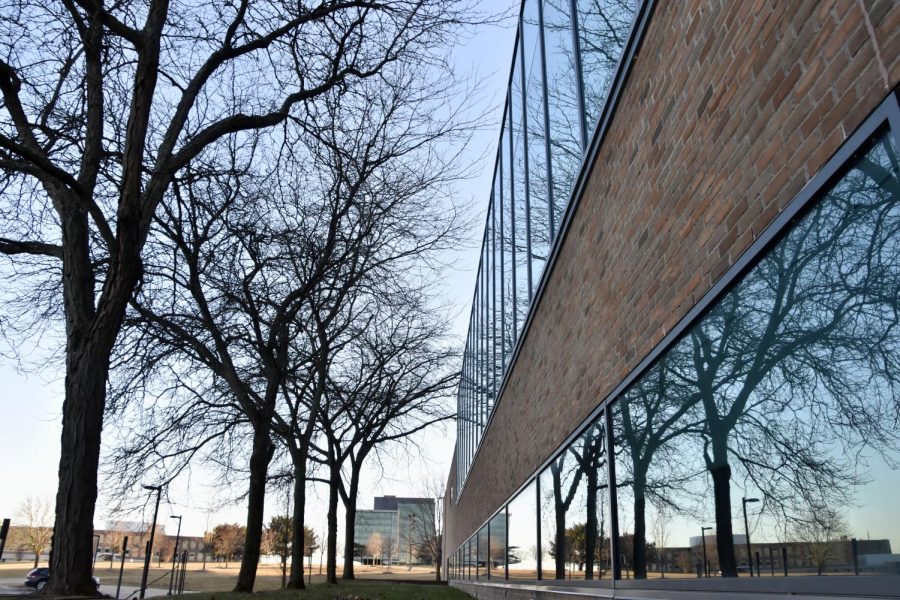Dean’s Office, Office of the Registrar relieve classroom space concerns
University officials continue to navigate a lack of classroom space on campus so students can learn in person in the fall.
In February and early March, the lack of classroom space at Oakland University shocked the Spanish Department’s students and faculty who feared the possibility of many Fall 2022 and Winter 2023 classes going online. Since then, the faculty, the Dean’s Office of the College of Arts and Sciences (CAS) and the Office of the Registrar have been working to retain in-person CAS classes.
Many CAS classes are typically held in South Foundation Hall (SFH), which is currently closed due to the delay of the $40 million renovation and expansion. Despite the temporary loss of classroom space, the Dean’s Office has relieved some of the initial space concerns.
“This pandemic happened, and at that point there were a lot of shifting modalities of courses. Coming out of that, the scheduling process usually starts for each department by schedules rolling over, and so whatever was scheduled last fall and winter as the modality would have been what it was in the initial schedule that the department had, and then from there it’s a matter of adjusting,” Associate Professor of Music Education and Associate Dean of CAS Joseph Shively said.
According to Shively, this process of adjusting is quite normal, even prior to the SFH closure — typically there are more classes that want a space than there are spaces at the beginning of the scheduling process. Consequently, the Dean’s Office and the Office of the Registrar creates a classroom waiting list prior to each semester.
As of March 22, the list has 23 classes, which are university-wide — not only CAS courses. A few weeks prior, there were over 70 classes waitlisted — classes and times shifted, rooms opened up and faculty decided what modality they prefer: in-person, hybrid, synchronous online or asynchronous online.
Some faculty elect to keep their courses online depending on what modality works best for their class.
“We don’t make that decision [of course modality] for those departments,” Shively said. “It’s sort of sorting all of that out. At no point does our office say something like ‘you have to do this or that.’ We work to find everybody the spaces that they need.”
For instance, for the Fall 2022 semester, Shively said there are only a few completely online Spanish courses, but all of the Summer 2022 courses in the Department of Modern Languages and Literatures are online — a departmental choice.
“It’s always a puzzle to work out getting everybody in classrooms that want to be there, and once South Foundation comes back, then we’ll have more classrooms with which to work, but, like I said, we’re down to very few classes who have requested in-person,” Shively said.
Not only will the renovation of SFH make a difference, but also the “right-sizing” of the classrooms in the building will help with scheduling. Rather than creating only large lecture rooms, the project will create classrooms with sizes that maximize scheduling ability, as size of the room is another factor the Dean’s Office and the Office of the Registrar must consider when planning courses.
“Once we have South Foundation, we’ll have more options, and it may be that we can match it with a better sized classroom,” Shively said.










Jack • Apr 5, 2022 at 10:59 PM
Great article Sarah! congrats on your tenure at the Oakland Post and good luck to you on your future endeavors!